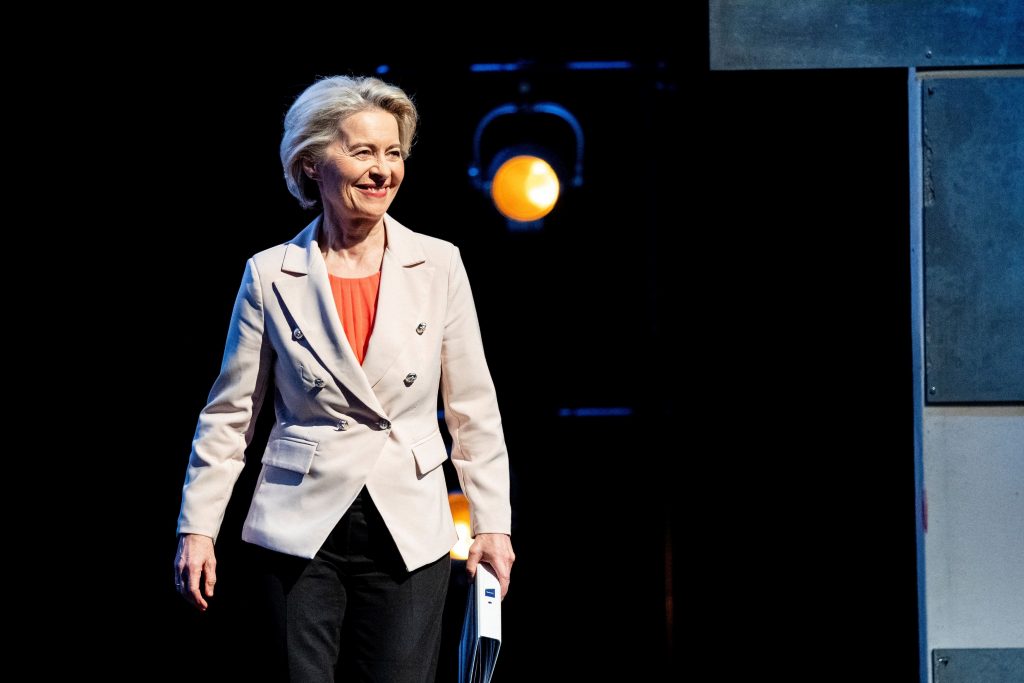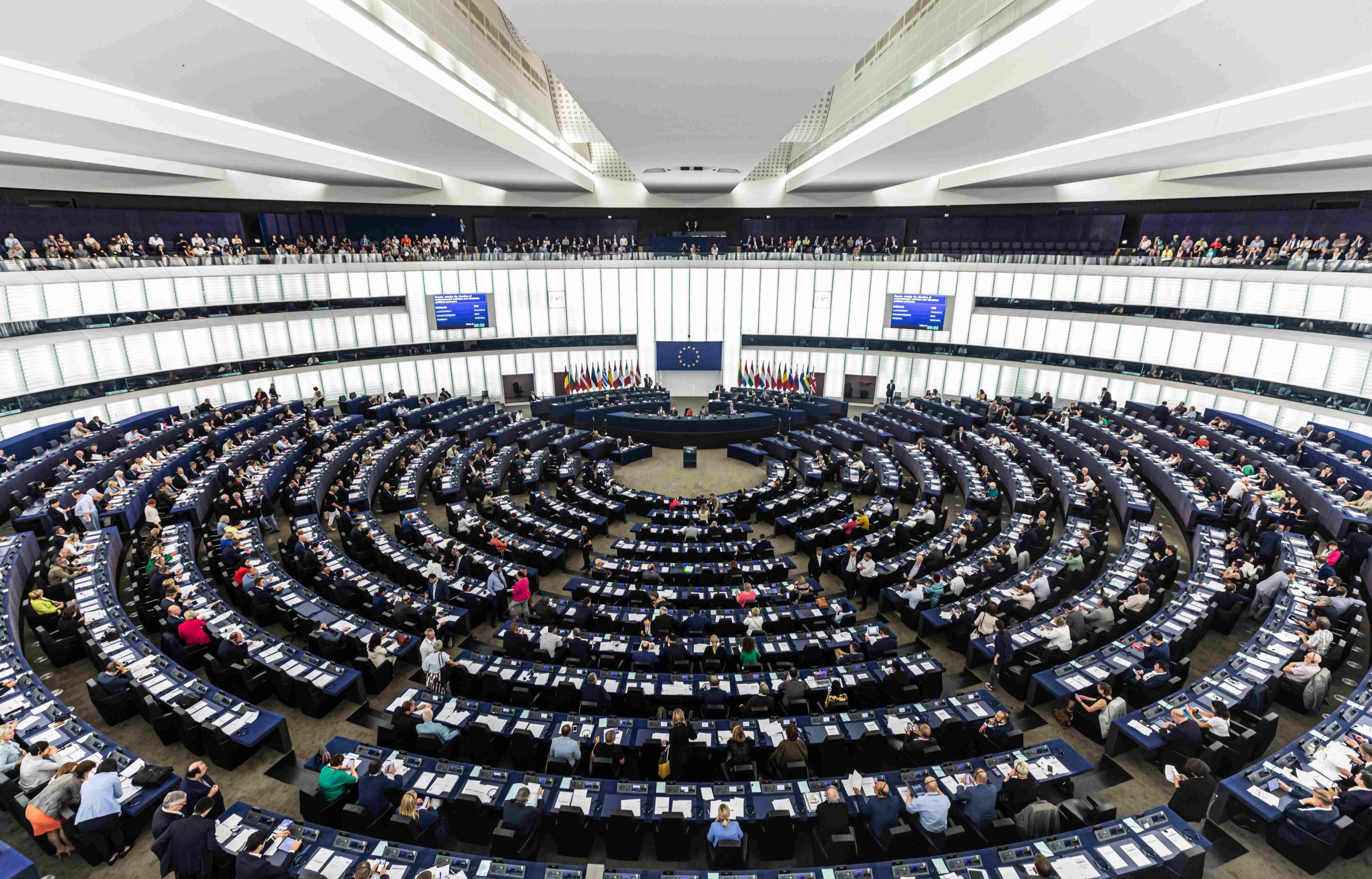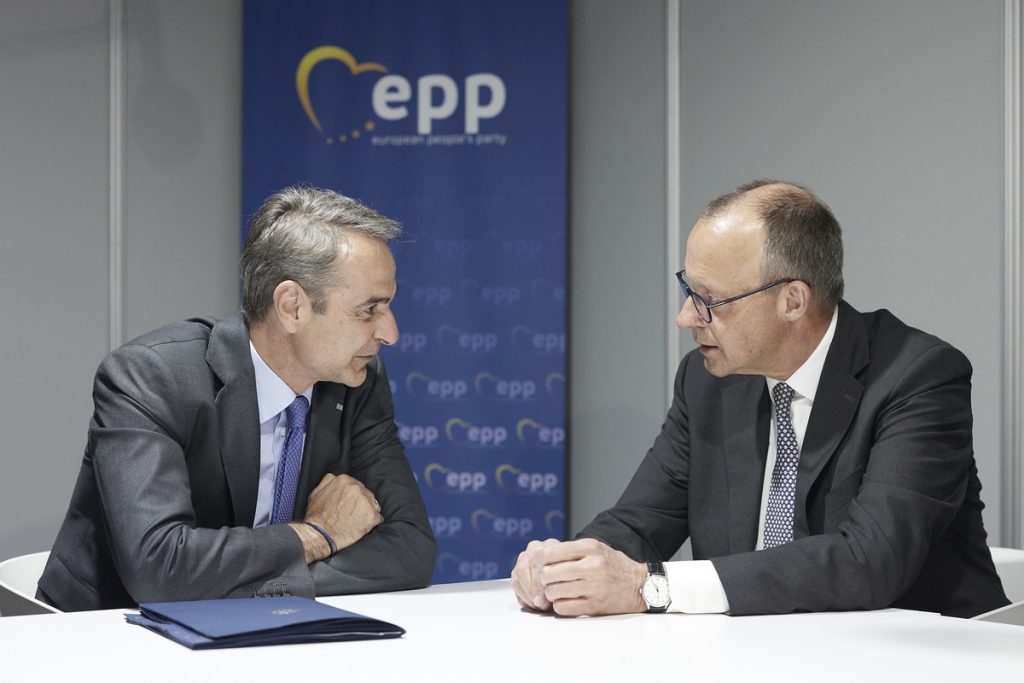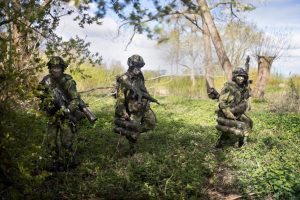Meaningful debates or just for show? Either way, the candidates for the Commission presidency will be facing off twice this week, talking about what has been done and what is to come over the next five years, as European elections loom next month.
On Tuesday 21 May, Financial Times Brussels Bureau Chief Henry Foy and Bruegel Senior Fellow and Economic Policy Professor Maria Demertzis will host European Commission President Ursula von der Leyen (European People’s Party), European Commissioner for Jobs and Social Rights Nicolas Schmidt (Socialists), MEP Sandro Gozzi (Renew-Liberals) and MEP Anders Wistisen (ID-Parliamentary Group for Identity and Democracy—Far Right).
Their guests will be invited to answer questions on competitiveness and the single market, economic security and the EU budget.
With the exception of Gozzi, this is the second time they have faced off since Maastricht. In the first debate, Renew was represented by Marie-Agnes Strack-Zimmermann, head of the defense committee of the German parliament; however, having seemingly failed to satisfy her party, she has been replaced for the second debate.
Speaking on enlargement in the European Parliament, Italian MEP Sandro Gozzi attacked the Commission President on the revision of the EU Treaty.
“Ms. von der Leyen, stop saying: ‘We will revise the Treaty, if and where necessary’. We know it’s necessary. What are you talking about exactly? We know that it is absolutely necessary to reform the Treaty.” At the same time, he pointed out that the power of veto serves only Hungarian Prime Minister Viktor Orbán. For his part, the socialist Schmidt was almost non-existent in the first candidates’ debate, as he neither reacted nor responded to anything for at least 30 minutes, earning negative comments in Brussels. Although he tries to make his presence felt, insiders say his membership of the present Commission makes it harder for him to distance itself from its decisions by simply criticizing its every decision. Speaking to Euronews, the Luxembourgish politician known to many as Nico focused inter alia on farmers’ issues, stating that there have been “huge increases in their production costs which are not reflected in their income or their prices. I think we have to think about how fit for purpose the idea of a clean market is, given that it punishes many, many farmers. A lot of small and medium-sized farmers are facing enormous difficulties.” The Commission had already backtracked on some of its proposals, and is pushing for more accommodations and a reduction in the bureaucratic burden on farmers. However, the problems have not gone away. The primary sector is expected to require additional initiatives on the part of the new Commission.
Von der Leyen, for her part, focused on the measures that have been taken during her term and the way in which she dealt with the unprecedented multi-crisis, but was also called upon to respond to attacks on her handling of important portfolios. She underlined the importance of competitiveness from Frankfurt, saying that “competitiveness is not a sure win. We know very well that financial success does not fall from the sky. Especially not when the wind of competition is blowing harder. Now is the time to make it easier for our companies. They need a more skilled workforce. Energy costs must continue to fall,” and stressed the need for more digitization and better access to capital.

Anders Wistisen is another returning face; in the Maastricht debate, he described Ursula von der Leyen’s presidency as a “disaster” and went so far as to say that, if it were up to them (ID) to decide, she would be the first to be “fired” after the European elections.
However, Wistisen will not be eligible to participate in the next EBU tele-debate on 23 May, since ID is in breach of the regulation requiring a group to have officially submitted a candidate for the chairmanship of the Commission.
The EBU notes that, in coordination with the European Parliament, it invited the political parties in the European Parliament to nominate a lead candidate from each of the seven official political groups. Specifically, it made this request to:
*the European People’s Party Group (EPP)
*the Progressive Alliance of Socialists and Democrats European Parliament Group (S&D)
*Renew
*the Greens/European Free Alliance(Greens/EFA)
*the European Conservatives and Reformists Group (ECR)
*the Identity and Democracy Group (ID)
*the Left in the European Parliament (GUE/NGL)
Five parties have responded and put forward a main candidate. Two parties, the ECR and ID, have refused to nominate a main candidate and cannot therefore participate in this debate.
Returning to the podium for the Left is Walter Bayer, who participated in Maastricht but not in the tele-debate of May 21. In the previous debate, he came under fire from Ursula von der Leyen when, on the issue of the war in Ukraine, he said that “a political solution means that those involved, the Ukrainian government, the Russian government, NATO and the US, have to discuss how a ceasefire can be brought about and the bloodshed in Ukraine brought to a stop. I cannot understand how anyone can continue to defend the idea that this war must continue until the last Ukrainian soldier is dead.” “I’m tired of hearing that” was the response of the EPP candidate, who stressed that “If you want this war to end, Putin has to stop fighting it”.
This time round, MEP Terry Reintke will be representing the Greens and not Bas Eickhout, who took part in the Maastricht debate and received positive comments for his performance. However, he was not the winner of the debate, as analysts noted that his statements were more theoretical than those of the Commission President, who made greater use of tangible facts. Ursula von der Leyen, Nicolas Schmidt and Sandro Gozzi will be on stage to “do battle” in this debate. They will be focusing on the economy and labor markets, defense and security, climate and the environment, democracy and leadership, migration and borders, and, finally, innovation and technology.
As a rule, the leadership of the Commission “belongs” to the parliamentary group that comes first in the European elections. The polls indicate that the European People’s Party will once again come first in these elections, and will thus continue to lead the Commission, with Ursula von der Leyen at the helm, or someone else if she fails. The Socialists, whom the polls place in second place, are likely to take charge in the Council. The presidency of both the Commission and the Council could be held by the same political group, but it would require the former to achieve a landslide victory over the latter and lay claim to both posts.



